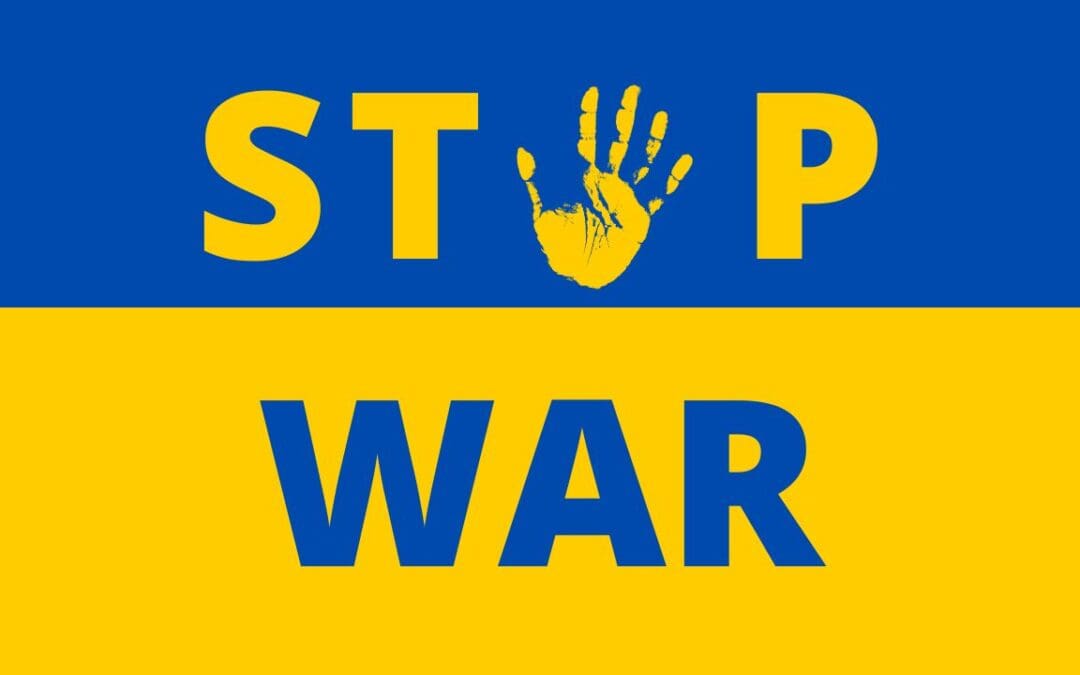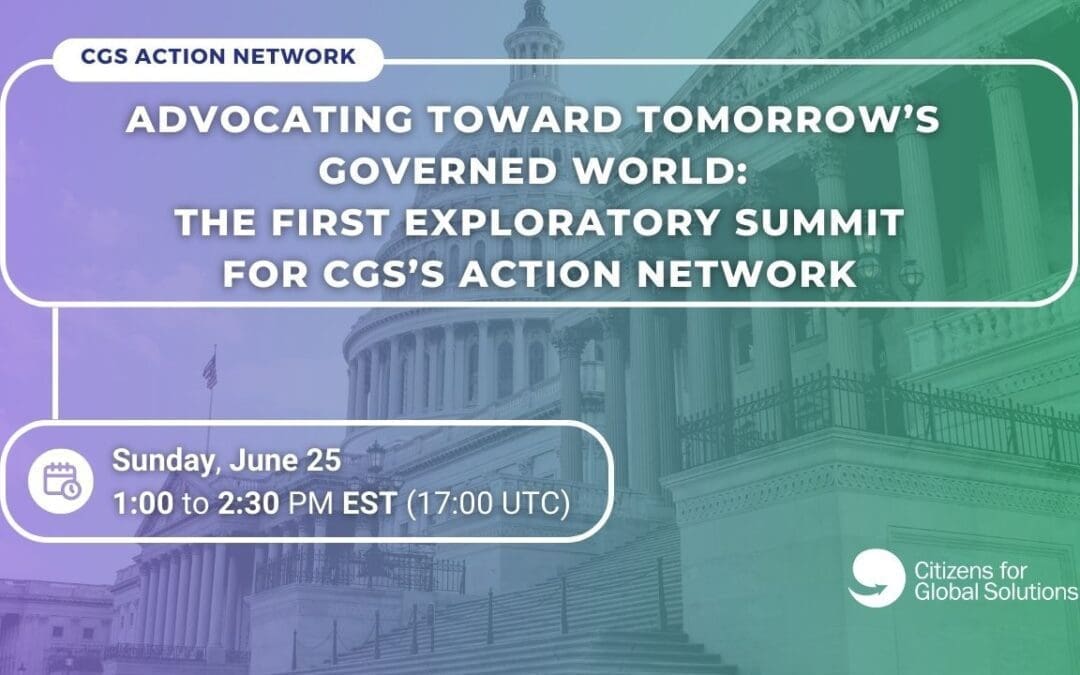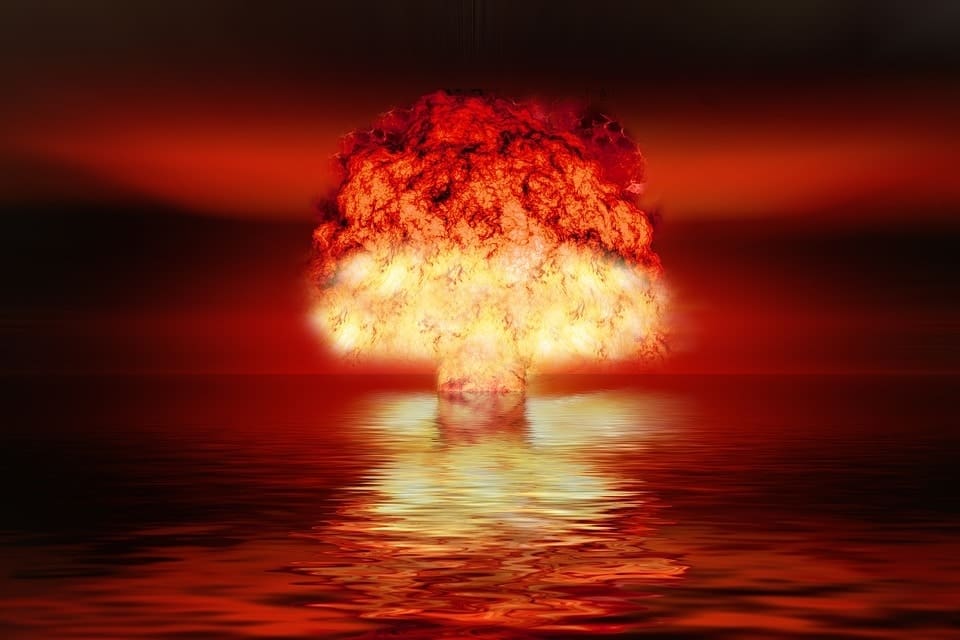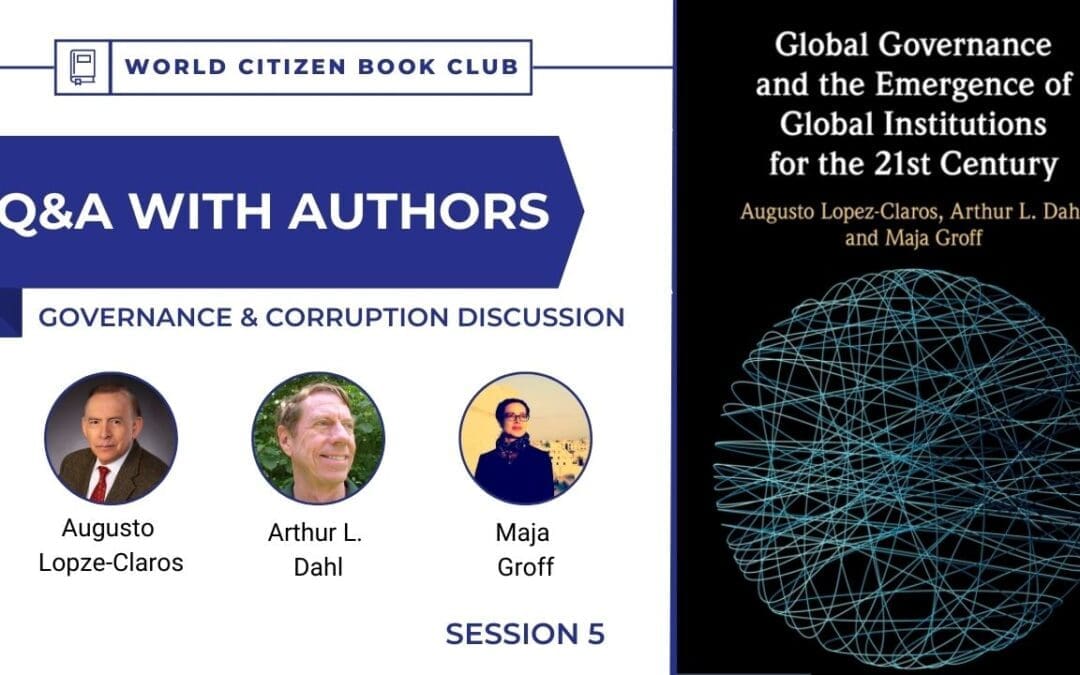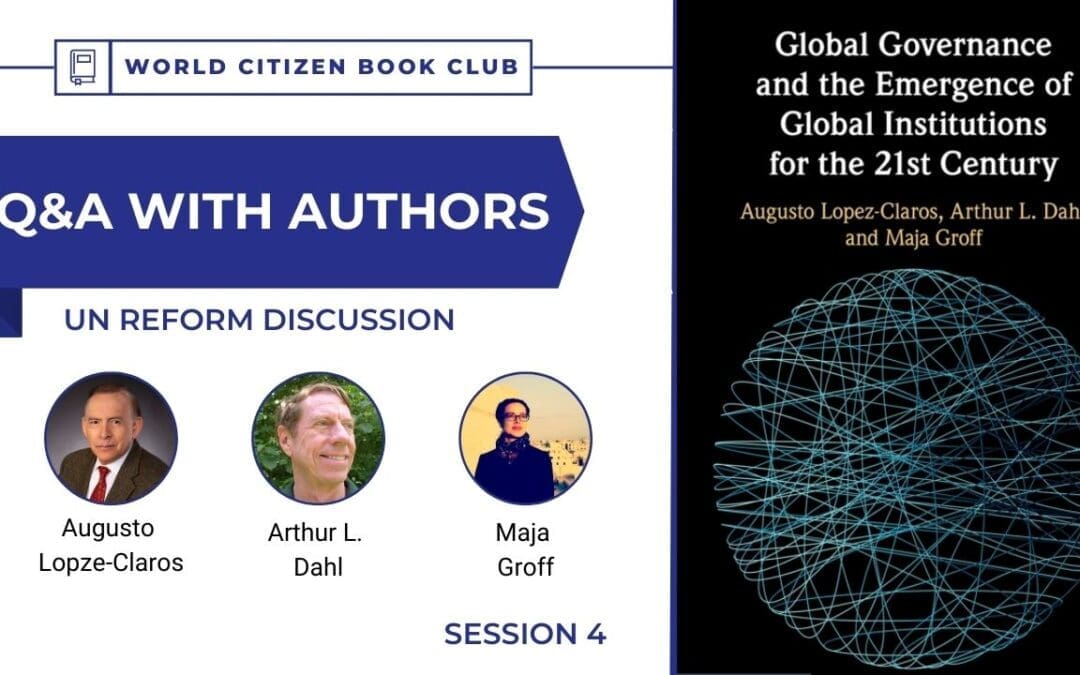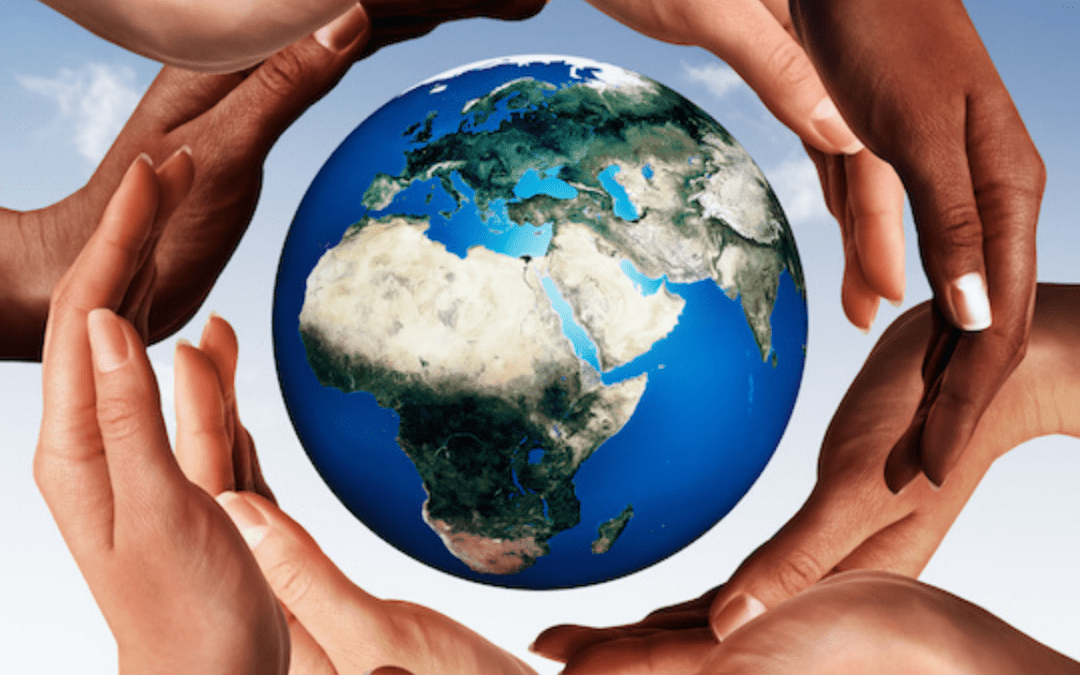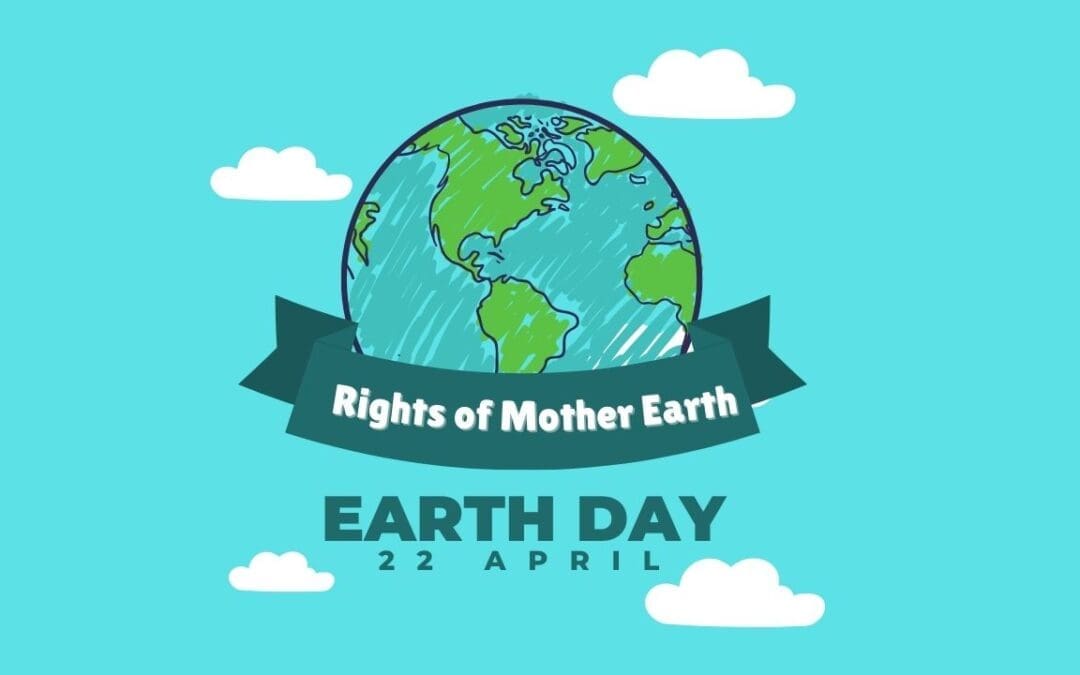
by Lawrence Wittner | Jun 29, 2023 | Peace
Perhaps the greatest tragedy of the immensely destructive Ukraine War lies in the fact that it could have been averted.
The most obvious way was for the Russian government to abandon its plan for the military conquest of Ukraine.
The Problem of Russian Policy
The problem on this score, though, was that Vladimir Putin was determined to revive Russia’s “great power” status. Although his predecessors had signed the UN Charter (which prohibits the “use of force against the territorial integrity or political independence of any state”), as well as the Budapest Memorandum and the Treaty on Friendship, Cooperation, and Partnership (both of which specifically committed the Russian government to respecting Ukraine’s sovereignty and territorial integrity), Putin was an ambitious ruler, determined to restore what he considered Russia’s imperial grandeur.
This approach led not only to Russian military intervention in Middle Eastern and African nations, but to retaking control of nations previously dominated by Russia. These nations included Ukraine, which Putin regarded, contrary to history and international agreements, as “Russian land.”
As a result, what began in 2014 as the Russian military seizure of Crimea and the arming of a separatist rebellion in eastern Ukraine gradually evolved into the full-scale invasion of February 2022―the largest, most devastating military operation in Europe since World War II, with the potential for the catastrophic explosion of the giant Zaporizhzhia nuclear power plant and even the outbreak of nuclear war.
The official justifications for these acts of aggression, trumpeted by the Kremlin and its apologists, were quite flimsy. Prominent among them was the claim that Ukraine’s accession to NATO posed an existential danger to Russia. In fact, though, in 2014―or even in 2022―Ukraine was unlikely to join NATO because key NATO members opposed its admission. Also, NATO, founded in 1949, had never started a war with Russia and had never shown any intention of doing so.
The reality was that, like the U.S. invasion of Iraq nearly two decades before, the Russian invasion of Ukraine was out of line with both international law and the imperatives of national security. It was a war of choice organized by a power-hungry ruler.
The Problem of UN Weakness
On a deeper level, the war was avoidable because the United Nations, established to guarantee peace and international security, did not take the action necessary to stop the war from occurring or to end it.
Admittedly, the United Nations did repeatedly condemn the Russian invasion, occupation, and annexation of Ukraine. On March 27, 2014, the UN General Assembly passed a resolution by a vote of 100 nations to 11 (with 58 abstentions), denouncing the Russian military seizure and annexation of Crimea. On March 2, 2022, by a vote of 141 nations to 5 (with 35 abstentions), it called for the immediate and complete withdrawal of Russian military forces from Ukraine. In a ruling on the legality of the Russian invasion, the International Court of Justice, by a vote of 13 to 2, proclaimed that Russia should immediately suspend its invasion of Ukraine. That fall, when Russia began annexing the Ukrainian regions of Donetsk, Luhansk, Kherson, and Zaporizhzhia, the UN Secretary-General denounced that action as flouting “the purposes and principles of the United Nations,” while the UN General Assembly, by a vote of 143 nations to 5 (with 35 abstentions), called on all countries to refuse to recognize Russia’s “illegal annexation” of Ukrainian land.
Tragically, this principled defense of international law was not accompanied by measures to enforce it. At meetings of the UN Security Council, the UN entity tasked with maintaining peace, the Russian government simply vetoed UN action. Nor did the UN General Assembly circumvent the Security Council’s paralysis by acting on its own. Instead, the United Nations showed itself well-meaning but ineffectual.
This weakness on matters of international security was not accidental. Nations―and particularly powerful nations―had long preferred to keep international organizations weak, for the creation of stronger international institutions would curb their own influence. Naturally, then, they saw to it that the UN’s predecessor, the League of Nations, could act on international security issues only by a unanimous vote of its membership. And even this constricted authority proved too much for the U.S. government, which refused to join the League. Similarly, when the United Nations was formed, the five permanent seats on the UN Security Council were given to five great powers, each of which could, and often did, veto its resolutions.
During the Ukraine War, Ukrainian President Volodymir Zelensky publicly lamented this inability of the United Nations to enforce its mandate. “The wars of the past have prompted our predecessors to create institutions that should protect us from war,” he remarked in March 2022, “but they unfortunately don’t work.” In this context, he called for the creation of “a union of responsible countries . . . to stop conflicts” and to “keep the peace.”
What Still Might Be Done
The need to strengthen the United Nations and, thereby, enable it to keep the peace, has been widely recognized. To secure this goal, proposals have been made over the years to emphasize UN preventive diplomacy and to reform the UN Security Council. More recently, UN reformers have championed deploying UN staff (including senior mediators) rapidly to conflict zones, expanding the Security Council, and drawing upon the General Assembly for action when the Security Council fails to act. These and other reform measures could be addressed by the world organization’s Summit for the Future, planned for 2024.
In the meantime, it remains possible that the Ukraine War might come to an end through related action. One possibility is that the Russian government will conclude that its military conquest of Ukraine has become too costly in terms of lives, resources, and internal stability to continue. Another is that the countries of the world, fed up with disastrous wars, will finally empower the United Nations to safeguard international peace and security. Either or both would be welcomed by people in Ukraine and around the globe.

by Citizens for Global Solutions | Jun 26, 2023 | Past Event
(CGS) for a unique event to explore challenges, opportunities, and strategies for advocating for foundational principles of democratic world governance. The summit will inform concrete action to achieve the vision of tomorrow’s governed world and combat such critical global challenges as violations of international law and human rights, environmental degradation, and escalating armament.
Statement of Purpose
For more than 75 years, Citizens for Global Solutions (CGS) has dedicated itself to the grand vision of a united planet, led by champions who represent some of the greatest minds of the last century. Despite this rich history, it is clear that the present moment demands new global solutions. The world has never been more interconnected: challenges of global health, environmental degradation, and illegal aggression do not respect borders. World federation provides the necessary framework for effective international cooperation but the question remains of the steps and pathway to this ultimate goal.
As CGS embarks on a new chapter, seeking innovative and ambitious solutions to current threats, we convene an “Exploratory Summit” to inform advocacy by our Action Network. At this summit, we invite subject matter experts and leading activists dedicated to our core causes and foundational values to share perspective on the contemporary means and methods for advocacy. The purpose of the summit is to help current and future CGS Action Network members identify priorities and strategies for our advocacy efforts. Participants will have the opportunity to engage in discussion with thought leaders and join CGS’s action efforts following the summit.
Topics will include:
- Supporting International Institutions through Informed Reform
- Promoting Treaty-Based International Law
- Advancing Climate Justice and Disarmament as Components of World Federation
- Mobilizing the Next Generation through Youth Outreach and Intergenerational Approaches
*CGS-Education Fund is a registered 501(c)(3). The CGS Action Fund is incorporated as a 501(c)(4).

by Citizens for Global Solutions | Jun 20, 2023 | Press Release
Washington, DC– On Sunday, June 25, 2023, 1:00PM – 2:30PM EST, Citizens for Global Solutions (CGS) will convene a unique hybrid event to explore current concrete apertures for grassroots engagement to achieve foundational principles of democratic world federation and combat such critical global challenges as violations of international law and human rights, environmental degradation, and escalating armament.
The “Exploratory Summit” comes as CGS embarks on a new chapter, seeking innovative and ambitious solutions to current threats to inform advocacy by our Action Network.[1] At this summit, we invite subject matter experts and leading activists dedicated to our core causes and foundational values to share their perspectives on the contemporary means and methods for advocacy. Participants will have the opportunity to engage in discussion with thought leaders and join CGS’s action efforts following the summit.
Topics will include:
Supporting International Institutions through Informed Reform [Augusto Lopes-Claros]
Promoting Treaty-Based International Law [Kristin Smith]
Advancing Climate Justice and Disarmament as Components of World Federation [Alyn Ware]
Mobilizing the Next Generation through Youth Outreach and Intergenerational Approaches [Jacopo DeMarinis]
We hope you will join us for this unique event. For more information, please contact: outreach@globalsolutions.org
About Citizens for Global Solutions
Citizens for Global Solutions (CGS) is a nonpartisan, non-profit non-governmental organization (NGO) that advocates for democratic global governance predicated on the rule of law and the protection of human rights. For more than 75 years, Citizens for Global Solutions (CGS) has dedicated itself to the grand vision of a united planet. We mobilize our members to take action to promote policies and institutions that address global challenges such as peace and security, climate change, and human rights abuses. We catalyze change through grassroots organizing, education and outreach programs, policy advocacy, and engagement with policymakers at national and international level.
[1] CGS-Education Fund is a registered 501(c)(3). The CGS Action Fund is incorporated as a 501(c)(4).

by Lawrence Wittner | Jun 10, 2023 | Disarmament
It should come as no surprise that the world is currently facing an existential nuclear danger. In fact, it has been caught up in that danger since 1945, when atomic bombs were used to annihilate the populations of Hiroshima and Nagasaki.
The Situation Today
Today, however, the danger of a nuclear holocaust is probably greater than in the past. There are now nine nuclear powers―the United States, Russia, Britain, France, China, Israel, India, Pakistan, and North Korea―and they are currently engaged in a new nuclear arms race, building ever more efficient weapons of mass destruction. The latest entry in their nuclear scramble, the hypersonic missile, travels at more than five times the speed of sound and is adept at evading missile defense systems.
Furthermore, these nuclear-armed powers engage in military confrontations with one another―Russia with the United States, Britain, and France over the fate of Ukraine, India with Pakistan over territorial disputes, and China with the United States over control of Taiwan and the South China Sea―and on occasion issue public threats of nuclear war against nuclear nations. In recent years, Vladimir Putin, Donald Trump, and Kim Jong-Un have also publicly threatened non-nuclear nations with nuclear destruction.
Little wonder that, in January 2023, the editors of the Bulletin of the Atomic Scientists set the hands of their famous “Doomsday Clock” at 90 seconds before midnight, the most dangerous setting since its creation in 1946.
A Reprieve, But Only a Temporary One
Until fairly recently, this march to Armageddon was disrupted, for people around the world found nuclear war a very unappealing prospect. A massive nuclear disarmament campaign developed in many countries and, gradually, began to force governments to temper their nuclear ambitions. The result was banning nuclear testing, curbing nuclear proliferation, limiting development of some kinds of nuclear weapons, and fostering substantial nuclear disarmament. From the 1980s to today, the number of nuclear weapons in the world sharply decreased, from 70,000 to roughly 13,000. And with nuclear weapons stigmatized, nuclear war was averted.
But successes in rolling back the nuclear menace undermined the popular struggle against it, while proponents of nuclear weapons seized the opportunity to reassert their priorities. Consequently, a new nuclear arms race gradually got underway.
And What of the Future?
Even so, creating a nuclear-free world remains possible. Although an inflamed nationalism and the excessive power of military contractors are likely to continue bolstering the drive to acquire, brandish, and use nuclear weapons, there is a route out of the world’s nuclear nightmare.
We can begin uncovering this route to a safer, saner world when we recognize that a great many people and governments cling to nuclear weapons because of their desire for national security. After all, it has been and remains a dangerous world, and for thousands of years nations (and before the existence of nations, rival territories) have protected themselves from aggression by wielding military might.
The United Nations, of course, was created in the aftermath of the vast devastation of World War II in the hope of providing national security. But, as history has demonstrated, it is not strong enough to do the job―largely because the “great powers,” fearing that significant power in the hands of the international organization would diminish their own influence in world affairs, have deliberately kept the world organization weak. Thus, for example, the UN Security Council, which is officially in charge of maintaining international security, is frequently blocked from taking action by a veto cast by one its five powerful, permanent members.
But what if global governance were strengthened to the extent that it could provide national security? What if the United Nations were transformed from a loose confederation of nations into a genuine federation of nations, enabled thereby to create binding international law, prevent international aggression, and guarantee treaty commitments, including commitments for nuclear disarmament?
How a Federation of Nations Could End the Nuclear Menace
Nuclear weapons, like other weapons of mass destruction, have emerged in the context of unrestrained international conflict. But with national security guaranteed, many policymakers and most people around the world would conclude that nuclear weapons, which they already knew were immensely dangerous, had also become unnecessary.
Aside from undermining the national security rationale for building and maintaining nuclear weapons, a stronger United Nations would have the legitimacy and power to ensure their abolition. No longer would nations be able to disregard international agreements they didn’t like. Instead, nuclear disarmament legislation, once adopted by the federation’s legislature, would be enforced by the federation. Under this legislation, the federation would presumably have the authority to inspect nuclear facilities, block the development of new nuclear weapons, and reduce and eliminate nuclear stockpiles.
The relative weakness of the current United Nations in enforcing nuclear disarmament is illustrated by the status of the UN Treaty on the Prohibition of Nuclear Weapons. Voted for by 122 nations at a UN conference in 2017, the treaty bans producing, testing, acquiring, possessing, stockpiling, transferring, and using or threatening the use of nuclear weapons. Although the treaty officially went into force in 2021, it is only binding on nations that have decided to become parties to it. Thus far, that does not include any of the nuclear armed nations. As a result, the treaty currently has more moral than practical effect in securing nuclear disarmament.
If comparable legislation were adopted by a world federation, however, participating in a disarmament process would no longer be voluntary, for the legislation would be binding on all nations. Furthermore, the law’s universal applicability would not only lead to worldwide disarmament, but offset fears that nations complying with its provisions would one day be attacked by nations that refused to abide by it.
In this fashion, enhanced global governance could finally end the menace of worldwide nuclear annihilation that has haunted humanity since 1945. What remains to be determined is: Are nations ready to unite in the interest of human survival?

by Citizens for Global Solutions | Jun 10, 2023 | Past Event
Session 5 of the book, Global Governance and the Emergence of Global Institutions for the 21st Century (2020) with all three authors, Augusto Lopez-Claros, Arthur Dahl, and Maja Groff. This session’s final discussion will include additional insights on the topics of corruption, education, values and principles to operationalize global good governance, immediate steps forward, and conclusions.

by Citizens for Global Solutions | May 29, 2023 | Organizational Statement
Washington, D.C. On May 21, Citizens for Global Solutions (CGS) and Young World Federalists (YWF) joined UNESCO, the UN, and civil society throughout the world in commemorating the World Day for Cultural Diversity for Dialogue and Development. In doing so, we recognize the centrality of the intertwined values of cultural diversity and intercultural dialogue to humanity, as well as their necessity to achieve the Sustainable Development Goals (SDGs) and foster world peace.
Why is it necessary to reflect on and honor Cultural Diversity for Dialogue and Development? Twenty years ago, the UN General Assembly established the World Day for Cultural Diversity for Dialogue and Development (A/RES/57/249). The necessity of recognizing this day is threefold:
First, the ability to practice and thrive in one’s culture is a universal, inalienable, and interdependent human right. Originally enshrined in the core human rights documents, the 2030 Agenda for Sustainable Development now proclaims, “We pledge to foster intercultural understanding, tolerance, mutual respect, and an ethic of global citizenship… and recognize that all cultures and civilizations can contribute to, and are crucial enablers of, sustainable development.” Target 11.4 explicitly states the goal of “strengthen[ing] efforts to protect and safeguard the world’s cultural and natural heritage.”
Second, respect for cultural heritage and intercultural dialogue is essential for peace. According to the UN, 89% of all current conflicts worldwide occur in countries that lack strong intercultural dialogue. Further, “[t]hree-quarters of the world’s major conflicts have a cultural dimension. Bridging the gap between cultures is urgent and necessary for peace, stability and development.”
Third, culture plays a vital role in advancing economic growth and realizing other SDG targets, such as environmental sustainability. According to UNESCO, the specialized UN agency charged with fostering international cooperation regarding scientific, educational, and cultural issues, the creative and cultural fields generate 48 million jobs worldwide (particularly for young people), which account for 6.2% of all employment and 3.1% of global GDP. Regarding environmental targets, as one example, weaving intangible cultural heritage into agricultural and environmental policies can enhance sustainable food production and environmental conservation.
What international mechanisms animate these principles? The United Nations and its entities have furthered several instruments to promote cultural diversity and intercultural dialogue. For example:
- To more effectively analyze the role of cultural diversity in realizing the SDGs and promote its incorporation in national and international development plans, UNESCO created the UNESCO Culture|2030 Indicators framework, which provides an expansive overview of the intersection of cultural heritage and the SDGs.
- To strengthen public awareness of how cultural diversity can advance the SDGs and stimulate international cooperation to embed cultural rights and issues in public policy, UNESCO convened MONDIACULT 2022 conference in Mexico in September 2022. This groundbreaking summit led to the adoption of the “Declaration of Culture,” which identified culture as a “global public good” and called for public policies to protect specific cultural rights such as the right of indigenous communities to preserve their cultural heritage.
- To spur intercultural and interreligious dialogue aimed at reducing discrimination and fostering intercultural solidarity, the UN has advanced initiatives such as the United Nations Alliance Among Civilizations (UNAOC), which organizes activities around the themes of Education, Youth, Migration, Media, and Women as Peace Mediators.
Moreover, there are now true for a for accountability for violations of cultural rights. The International Criminal Court (ICC) recently affirmed the connection between cultural heritage and human rights by convicting the leader of a group who oversaw the destruction of religious and cultural sites and buildings in Timbuktu, Mali, of war crimes. The Mayan Q’eqchi’ community recently took the Guatemalan government to the Inter-American Court of Human Rights, alleging that the government’s approval of mining operations on their territory violated their collective rights to ancestral lands and natural resources.
How can we, as global citizens and world federalists, advance this agenda? One thing is certain; we must act quickly to foster this vital dialogue. As Kofi Annan said, “Without this dialogue taking place every day among all nations – within and between civilizations, cultures and groups – no peace can be lasting and no prosperity can be secure.” How can this vision become reality?
- Proactive government engagement. While the UN must continue to engage, it is also incumbent upon national governments to actively enhance intercultural dialogue. For example, governments at all levels can engage in cultural diplomacy bilaterally with counterparts and through the UN system, drawing on cultural heritage and diversity to enhance mutual understanding and cooperation on such global issues as climate change and conflic A recent high-level forum led to the adoption of the “Roadmap for the International Year of Dialogue as a Guarantee of Peace” a series of events throughout 2023, including multilateral discussions, debates, and youth activities.
- Civil society leadership. Civil society also plays a key role in this respect. For example, civil society can advocate at the ninth session of the Conference of Parties to the Convention on the Protection and Promotion of the Diversity of Cultural Expressions, which will take place from June 6 to 8, 2023, to urge governments to adopt the 2005 Convention that provides a new framework to effectively protect and promote the diversity of cultural expression.
- Intergenerational action. At CGS and YWF, we recognize that promoting, preserving, and protecting cultural diversity and intercultural dialogue is a generational enterprise. World Federalist organizations are putting youth at the center of programming to elevate their voices. Below is a list of several initiatives undertaken by various world federalist organizations:
About Citizens for Global Solutions & Young World Federalists
Citizens for Global Solutions (CGS) is a non-governmental, non-profit, non-partisan membership-based organization that for more than 75 years has brought together a diverse collective of individuals and organizations with a common goal of a unified world predicated upon peace, human rights, and the rule of law. From championing ratification of the UN Charter upon our establishment in 1947 to supporting creation of the International Criminal Court (ICC) 25 years ago to advocating for global instruments to confront today’s enduring challenges of war and climate degradation, CGS recognizes that true progress is a generational enterprise. We invite like-minded individuals and organizations to join us in this mission.
Young World Federalists
Young World Federalists (YWF) is a global movement fighting to give humanity a voice. We envision a sustainable, just, and peaceful world through a democratic world federation. A world run by humanity, for humanity, providing equal opportunity to all on a thriving planet. YWF is currently engaged in a #SaveEarth campaign, which is focused on prosecuting crimes against the environment, taking effective action on climate change, and building a sustainable economy.
Contact: Rebecca Shoot, Executive Director, Citizens for Global Solutions at outreach@globalsolutions.org

by Citizens for Global Solutions | May 13, 2023 | Past Event
Session 4 of the book, Global Governance and the Emergence of Global Institutions for the 21st Century (2020) with authors, Augusto Lopez-Claros and Arthur Dahl. This session’s discussion focuses on UN specialized agencies to address global risks, inequality and the private sector, financial architecture and the IMF, responding to global environmental crises, and population and migration.

by Sovaida Maani Ewing | May 4, 2023 | Global Cooperation
Lessons Repeat Themselves Until Learned
One of the inescapable features of human existence is that lessons we fail to learn repeat themselves over and over, usually with increasing ferocity until the lesson is learned. This principle applies not only to our individual lives, but to humanity’s collective life as well. One of these global lessons that has been repeating itself with ever-increasing intensity is that localized or regional conflicts have global repercussions.
A good example is the war in Syria, which spawned a number of crises that impacted countries far beyond its border. One of them was the refugee crisis, which affected not only Syria’s immediate Middle Eastern neighbors like Lebanon, Jordan, and Turkey but had far-reaching effects in Europe as well. The wave of refugees washing up on Europe’s shores was a driving force in the rise of right-wing governments in several countries. It was also one of the factors that precipitated Brexit, as the United Kingdom frantically attempted to take control of its own destiny and limit the flow of unwanted refugees to its shores.
The Syrian conflict also created fertile conditions in Syria and Iraq that allowed ISIS to flourish and carry out brutal acts that impacted the citizens of many nations near and far. In addition, the civil war in Syria resulted in the creation of what some of the media referred to as a “proto world war,” as countries arrayed themselves on opposing sides of a widening conflict.
We Missed the Opportunity to Learn from the War in Syria
Unfortunately, the international community failed to grasp the opportunity arising from the conflict in Syria to devise a global mechanism to end the Syrian conflict. It is therefore no surprise that one of the most pressing conflicts of the day, Russia’s war against Ukraine, has left our global leaders paralyzed, dithering, taking half-measures and seemingly unable to take the kind of decisive and effective action that would have nipped it in the bud before it festered into the global morass it is today.
The War in Ukraine Has Triggered Several Global Crises
This latest regional conflict has been having its own world-encircling impact: indeed, it has been responsible for triggering several global crises. They include a global food crisis that has resulted in food shortages and the rise in the price of bread, a staple food which so many, especially in the poorest nations, rely on for survival. The Ukraine conflict has also sparked a global energy crisis as the flow of natural gas from Russia, on which many countries have relied, has significantly diminished. The result has been a spike in the price of energy across the world, including the richer nations of Europe. In the U.K. alone, the cost of heating homes has risen dramatically, causing much economic pain. As though this were not enough, the war has contributed to the rise of stubborn inflation worldwide which is having a significant and deleterious impact on the global economy. Some, including the World Bank, fear that we will soon find ourselves in a global recession.
To add to all these global crises, the nations of the world are dividing themselves into two opposing camps with the United States, Europe, Japan, South Korea, Australia and New Zealand arrayed on one side and Russia, China, Iran, North Korea, and possibly India on the other. This level of global polarization constitutes a threat to global peace and security. In the past, it has led to world wars, a consequence we want to avoid at all costs. The threat is exacerbated by the increasing worry that nuclear weapons may be used either accidentally or deliberately by one of these nations in a moment of heated miscalculation, triggering a nuclear war, which, even if limited geographically, would have disastrous consequences for humanity.
It’s Time to Revisit President Wilson’s 14 Points and the Atlantic Charter
The ever-increasing cascade of crises points to the imperative need for the international community to devise a viable global system of collective security that is capable of ensuring international peace. It is time for the world to revisit and finally implement two principles proposed by two American presidents in the early and middle parts of the twentieth century.
The first is the principle that was proposed by President Woodrow Wilson in 1918 as part of his 14 Point program which called for limiting the number of arms each nation can possess to the smallest amount consistent with domestic safety. Alas, the world failed to implement this recommendation when it created the League of Nations in the aftermath of the First World War. It failed to do so at its peril and suffered another devastating world war. The world then missed another opportunity to implement President Wilson’s recommendation when the United Nations was created after the Second World War.
The second principle that the world should seriously revisit and implement is set out in Article 8 of the Atlantic Charter, drawn up by U.S. President Franklin D. Roosevelt and U.K. Prime Minister Winston Churchill in August 1941. This principle called for nations to abandon the use of force “for realistic as well as spiritual reasons.” It, too, was never implemented.
The Key to Peace is Creating a Global System of Collective Security
Given the recent horrors humanity has experienced as a result of the conflicts in Syria and Ukraine (and in many other nations, including Yemen, Ethiopia, Myanmar, and Sudan), the international community may finally be ready to build a global system of collective security that is firmly grounded in these two foundational principles.

by Citizens for Global Solutions | Apr 26, 2023 | Press Release
Citizens for Global Solutions (CGS) Education Fund is delighted to welcome Rebecca A. Shoot as our next Executive Director, succeeding Bob Flax, who will serve as CGS President until his retirement at the end of July. CGS’s Board of Directors takes this opportunity to express immense gratitude to Bob for his inspiring leadership during his tenure as Executive Director and looks forward to his continued contributions.
The first woman and among the youngest individuals to lead CGS throughout its 75-year history, Rebecca brings nearly two decades of practical experience in the non-governmental, inter-governmental, and private sectors implementing initiatives that give life to CGS’s foundational vision of a unified world community predicated on democratic values, human rights, and the rule of law. Of Rebecca’s appointment, CGS Education Fund Board Chair Donna Park noted, “I am pleased that Rebecca is stepping into this leadership role for CGS. Her background, experience, contacts, energy, creativity and personality are valuable assets. I believe she will work collaboratively with the Board and staff to grow CGS and the international world federalist movement to deliver our vision of a peaceful, free, just and sustainable world community.”
In nearly a decade with the National Democratic Institute (NDI), Rebecca held numerous positions in headquarters and the field supporting and leading democracy and governance programs in Central and Eastern Europe and Southern and East Africa. She subsequently moved to a leadership role steering NDI’s Governance projects globally and directing programming for the bipartisan House Democracy Partnership of the U.S. House of Representatives. Rebecca created a global parliamentary campaign for Democratic Renewal and Human Rights as Senior Advisor to Parliamentarians for Global Action (PGA), an international network of legislators committed to collaboration to promote democracy, human rights, and the rule of law. Prior to that, she directed PGA’s International Law and Human Rights Programme and ran PGA’s office in The Hague. Most recently, she helmed global programming to promote gender equality and criminal justice reform for the American Bar Association Rule of Law Initiative (ABA ROLI).
Rebecca has spoken at high-level conferences and events on five continents (and increasingly, globally through online platforms). Her publications include the first Global Parliamentary Report (IPU & UNDP 2012), Political Parties in Democratic Transitions (DIPD 2012), and Navigating between Scylla and Charybdis: How the International Criminal Court Turned Restraint Into Power Play (Emory Int’l L. Rev. 2018), which was honored with the Emory International Law Review’s Founder’s Award for Excellence in Legal Research and Writing.
Rebecca is admitted to practice law in the District of Columbia and is a member of several bar associations, including the American Branch of the International Law Association (ABILA), where she serves as Advocacy Director for the International Criminal Court (ICC) Committee. She served as a Visiting Professional in the Presidency of the ICC and has provided pro bono legal expertise to The Carter Center, International Refugee Assistance Project, United Nations Working Group on Enforced and Involuntary Disappearances, and U.S. Marine Corps University, where she helped develop the international humanitarian law curriculum.
Rebecca earned a Juris Doctorate with Honors from Emory University School of Law, where she received several academic distinctions, including the David J. Bederman Fellowship in International Law and Conley-Ingram Scholarship for Public Interest Leadership. She earned a Master of Science in Democracy & Democratisation from University College London School of Public Policy and a Bachelor of Arts Magna Cum Laude in Political Science from Kenyon College. She holds certificates in Conflict Analysis from the U.S. Institute of Peace and in Public International Law from The Hague Academy of International Law.
As Executive Director of CGS, Rebecca will continue her current role as Co-Convener of the Washington Working Group for the International Criminal Court (WICC), a diverse coalition of human rights organizations, legal associations, former government officials, and leading legal professionals. CGS and WICC have a rich and intertwined history that this dual appointment brings full circle, with CGS formerly serving as host for the coalition and with several current and former common Board and National Advisory Committee members. She also acts, directs, and writes for the theater.
“It is a profound privilege and challenge to serve an organization with both a distinguished history and unwavering ongoing commitment to an idea that is simultaneously radical and fundamental: one world, free from conflict with humanity united to respect the rights of all individuals, peoples, creatures, and our planet itself. Shaped by some of the greatest minds of the last century, this vision could not be more relevant today. Beyond the opportunity to serve this most powerful mission, it is a personal delight to work with such committed and supportive individuals as compose the CGS staff and board.” – Rebecca A. Shoot

by Citizens for Global Solutions | Apr 22, 2023 | Organizational Statement
Let this Century be the Century of the Rights of Mother Earth: Strengthening Global Governance is Key to Ensuring a Sustainable Future
Washington, DC- On April 22, Citizens for Global Solutions (CGS) joins the United Nations and civil society throughout the world in celebrating International Mother Earth Day. On April 22, 2009, the Bolivian government proposed a resolution that was adopted by the United Nations General Assembly (UNGA) declaring every April 22 to be International Mother Earth Day. The resolution calls for “acknowledging that the Earth and its ecosystems are our home” and “promot(ing) harmony with nature and the Earth” to adequately address our environmental, economic, and social needs.
Evo Morales, the former President of Bolivia, strongly supported the adoption of this resolution, asserting during a meeting with the UNGA that “the twenty-first century is the century of the rights of Mother Earth and of all living beings.” During his speech, President Morales also stressed the importance of four, critical rights to which Mother Earth and all life on Earth are entitled: the right to life, the right to regenerate its biodiversity, the right to live a clear life (free of pollution and toxins), and the right to “harmony and balance with and among all and everything” (recognizing the interdependence of all life on Earth.) Furthermore, President Morales called for the incorporation of these four principles in the “Universal Declaration of the Rights of Mother Earth,” which was prepared during the World People’s Conference on Climate Change and the Rights of Mother Earth, hosted in Bolivia in 2010.
CGS and Young World Federalists (YWF) unconditionally support the principles and priorities enshrined in the Universal Declaration of the Rights of Mother Earth, and we strongly believe that ensuring a sustainable future for present and future generations can only be achieved by strengthening global governance and international environmental cooperation. Ramesh Thakur, former UN Assistant Secretary-General, argues that the “global governance deficit,” or the lack of global institutions that implement, interpret, and enforce international environmental laws and treaties, is among the factors that impede meaningful international action to address the climate crisis. Furthermore, Thakur asserts that a world order based on absolute national sovereignty- where countries are not held responsible for violating their environmental commitments- is a key cause of this lack of global environmental governance since it encourages political leaders to prioritize their own political interests over the well-being of Mother Earth.
How can we foster international cooperation and bolster global governance to address the climate crisis? One possible path forward is strengthening existing global governance institutions. This includes empowering the UNGA to pass binding international resolutions driving global emissions reduction efforts, particularly on the part of high emitting countries like the US and China.
Another pathway is to support and strengthen international legal institutions’ capacity to hold perpetrators accountable for environmental crimes. The Rome Statute, the foundational treaty of the International Criminal Court (ICC), notably includes environmental destruction within the definition of war crimes [Art 8.2(b)(iv)].Beginning in 2016, the Court announced that it would begin “considering cases involving environmental destruction, misuse of land, and land grabs as crimes against humanity.” The Office of the Prosecutor (OTP) also has communicated its intent “to cooperate and provide assistance to States, upon request, with respect to conduct which constitutes a serious crime under national law, such as . . . destruction of the environment.” Despite these notable steps, there are increasing calls to include “the crime of ecocide” as a stand-alone crime via amendment to the Rome Statute. To this end, the Independent Expert Panel for the Legal Definition of Ecocide, convened by the Stop Ecocide Foundation, formulated a draft definition of the crime, which would place ecocide on equal footing with the four crimes within the Court’s current jurisdiction: genocide, crimes against humanity, war crimes, and the crime of aggression.
Establishing the international crime of ecocide also is a key recommendation of the Environmental Governance track of the Global Futures Forum (GFF), a civil society-led conference last March which convened hundreds of NGOs and individuals from around the world to further civil society and youth input in the Summit of the Future.
An additional environmental governance recommendation from the GFF is to encourage the International Court of Justice (ICJ) to more frequently address environmental issues. While the ICJ has heard cases touching on environmental matters, beginning with the notable Nicaragua v. Costa Rica judgment (holding that Nicaragua had a duty to compensate Costa Rica for “major environmental damages to its territory,” the Court has yet to deploy a powerful potential tool for environmental justice: Currently, the ICJ’s Chamber for Environmental Matters, established in 1993, has still not heard an environmental case due in part to states’ reluctance to classify a dispute as essentially “environmental” in nature.Furthermore, a UNGA resolution last month, sponsored by Vanuatu – an island country that has disproportionately experienced the effects of the climate crisis – could signify a decisive turning point regarding the ICJ’s involvement in environmental matters. Specifically, the resolution empowers the UNGA to seek ICJ adjudication in cases concerning countries’ commitments to address climate change and where countries intentionally or negligently cause environmental degradation that affects other countries’ environmental well-being, especially nations that are most vulnerable to climate change, like island countries.
Promoting meaningful international climate action may also require creating new global governance institutions, such as an International Court for the Environment. Experts have proposed a “Climate Club” that would establish a single international target carbon price and sanction non compliant countries and countries that do not participate. Furthermore, the Environmental Governance track of the GFF called for the establishment of an “Earth Governance Regulatory Body,” which would pursue a global Decarbonization Agenda to promote a just transition to a more sustainable economy.
We at CGS and YWF are confident that the 21st century will be, as Evo Morales declared, “the century of the rights of Mother Earth and of all living beings.” Yet ensuring a sustainable future for all who call Mother Earth their home will require unprecedented, yet necessary, international action to address the climate crisis. And that starts with strengthening global environmental governance.
“Earth Day cannot be a moment for reflection alone. It must compel action. As Wendell Berry cogently stated ‘the Earth is all we have in common.’ It is our shared responsibility as a global family to embrace the theme of 2023 Earth Day and invest in our planet.” – Rebecca A. Shoot, Executive Director, Citizens for Global Solutions (CGS)
About Citizens for Global Solutions & Young World Federalists
Citizens for Global Solutions (CGS) is a non-governmental, non-profit, non-partisan membership-based organization that for more than 75 years has brought together a diverse collective of individuals and organizations with a common goal of a unified world predicated upon peace, human rights, and the rule of law. From championing ratification of the UN Charter upon our establishment in 1947 to supporting creation of the International Criminal Court (ICC) 25 years ago to advocating for global instruments to confront today’s enduring challenges of war and climate degradation, CGS recognizes that true progress is a generational enterprise. We invite like-minded individuals and organizations to join us in this mission.
The Young World Federalists (YWF) are a global movement fighting to give humanity a voice. We envision a sustainable, just, and peaceful world through a democratic world federation. A world run by humanity, for humanity, providing equal opportunity to all on a thriving planet. YWF is currently engaged in a #SaveEarth campaign, which is focused on prosecuting crimes against the environment, taking effective action on climate change, and building a sustainable economy.
Contact: Rebecca Shoot outreach@globalsolutions.org
